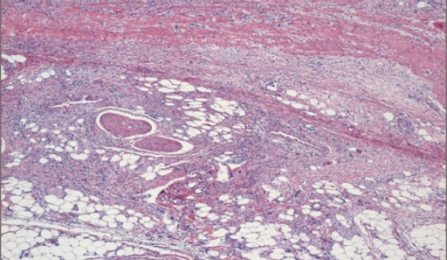Lymphocyte Infiltration of Tumors

Studying and analyzing lymphocyte infiltration will offer new insights into interactions of tumors with the immune system, and may offer new therapeutic targets.
Statistician: Alan Hutson, PhD
Funding Agency: National Institutes of Health
Period: 04/2008-01/2012
Abstract: The first step toward studying function of Lynf genes and their molecular identification is establishment of their chromosomal location with a precision of 1-2 cM or less and generation of congenic lines carrying these short segments on O20 background.
Capacity of lymphocytes to infiltrate tumors is essential for T-lymphocyte-mediated tumor destruction. In human cancer, a high degree of tumor infiltration is associated with a better prognosis. In fact, the degree of infiltration is an even better prognostic predictor than the standard TNM UICC stage. Tumors undergoing immunotherapy often escape destruction even in the systemic presence of large numbers of tumor-specific effector cells, because the immune cells do not reach the tumor. However, neither the clinical studies on relationship between lymphocyte infiltration and prognosis, nor the studies on effects of immunotherapy explain why some patients have a high and others low degree of infiltration.
A prediction of the capacity of lymphocytes to infiltrate tumors would be important for assessment of cancer prognosis and for selection of patients who will likely respond to immunotherapy. However, in spite of extensive definition of sequential processes and molecules that contribute to adhesion of lymphocytes to the vascular wall, diapedesis, and invasion of tumors, the prediction of the outcome of this process in individual patients is not yet possible. We have identified a novel approach to assessment of individual propensity for tumor infiltration. We show that propensity for tumor infiltration by lymphocytes is genetically controlled by the genome of the host (patient) and hence it can be assessed by analysis of DNA of any normal tissue, without analyzing tumor tissues. This hypothesis is based on the unexpected finding that in the mouse the presence and intensity of tumor infiltration is controlled genetically. We mapped four such genetic loci, Lynf1 - Lynf4 (Lynf = Lymphocyte infiltration). These loci do not encode any of the > 50 genes (adhesion molecules, chemokines, matrix metalloproteinases etc.) that have been previously inferred to participate in lymphocyte trafficking and tumor infiltration. Therefore the Lynf genes likely represent a new group of factors participating in these processes. Their analysis will offer new insights into interactions of tumors with immune system and they may become new therapeutic targets. It would also help to avoid immunotherapy in patients with low propensity for tumor infiltration and lead to an individualized choice of other treatments instead.
To study the function of these genes and identify them molecularly, we will generate congenic lines carrying these genes in short chromosomal segments (less than 2-4 cM) so that their functions can be analyzed with little interference from other genes. We shall determine whether these genes influence tumor growth, determine selectively infiltration by certain lymphocyte subclasses, and whether they operate systemically in bone marrow derived cells or locally in the tumor and its microenvironment. We will identify at least one Lynf gene molecularly, so its function can be studied also in humans. All animals and humans contain cells, lymphocytes that are responsible for defense against infections and cancer. However, for unknown reasons in many patients these cells are not present in sufficient numbers inside the cancer tissue, which can increase probability of invasion and metastasis, shorten survival time, and lower effectiveness of vaccines against cancer. We discovered that in the mouse are genes that determine whether the lymphocytes will invade cancer or not, and will study the function and structure of these genes, in order to be able to apply this discovery in to improved treatment of human cancers.

